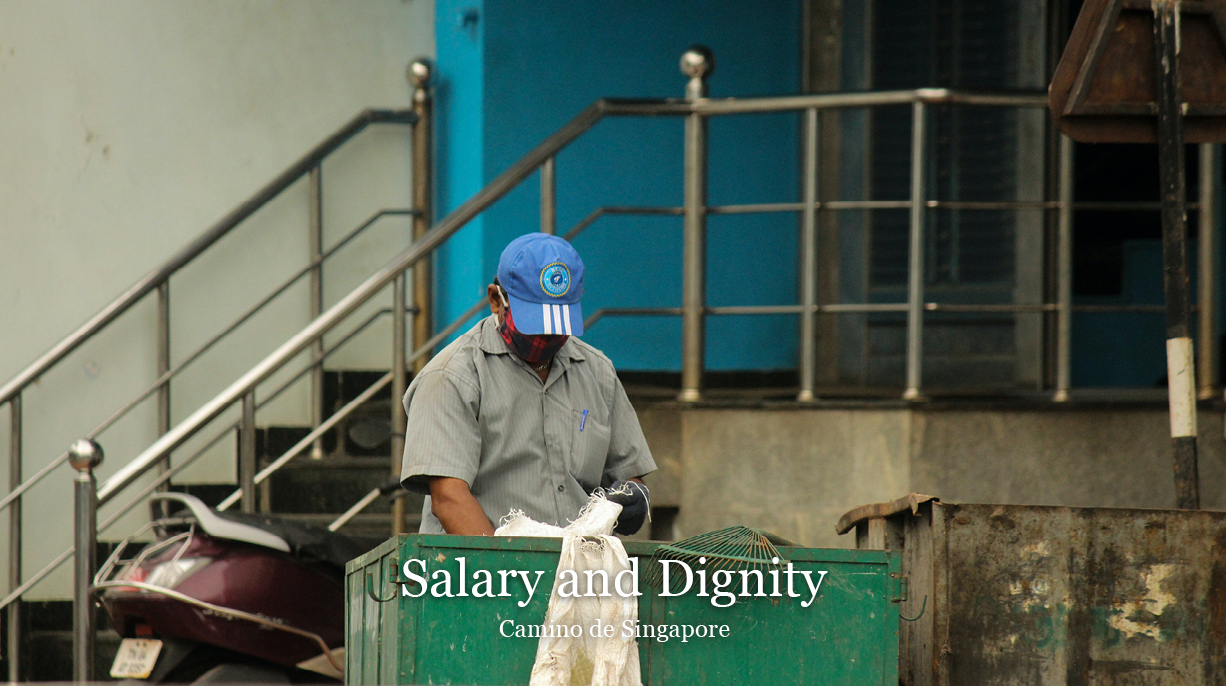No products in the cart.

Photo by https://unsplash.com/@keerthi1011
When I was studying in the States for my master’s degrees, I appreciated how encouraging my professors were. But it could become too much. It was difficult to tell how genuine they were whenever they said a work was well done because they seldom, if ever, said anything was bad. Over time, I only believed their affirmation if I received a good grade. It was easy to say something was good, but taking action to show that sentiment was harder.
Thinking about low-income workers here, I see a similar point. It is easy to say that low-income workers are important, heroic frontline workers in the pandemic crisis. It is much harder to give them a pay raise when they do need it. The difference between this and my studies is that I did not need good grades to live well. This difference is critical. The Catholic Church teaches that every person is made in the image of God, possessing infinite dignity. As such, all of us deserve to develop and flourish. This is not possible if a person does not have enough resources to do so.
Yet, it is a prevalent economic assumption that wage is just the intersection between demand and supply for labour. But maybe we should also see wage as a function of how much a work is appreciated. While there may be too many people doing a particular job, but that excess supply does not mean pay should be decreased if we think that work is valuable.
This is why I was glad to hear that there are plans to meaningfully raise the salary levels of low-income workers, especially cleaners. After all, our quality of life depends on them. Cleaners, for example, are the people who enable us to have high level of sanitation and live healthily. Just think of how life could have been if no one cleans the office or public toilets and the common areas of our apartment blocks.
Now, very few of us have the privileged position to do anything meaningful about low-income workers, although we can at least be appreciative in our manners. Perhaps we can contribute towards a culture that believes in the indirect link between salary and dignity, where one needs sufficient resources to be able to express one’s dignity as a child of God. For example, if we have influence over other people’s wages, and we think there is a mismatch between their pay and the importance of their work, we should try to find ways, if possible, to help. Some ways could include discussion with relevant parties or upskilling. We can also try to give tips whenever appropriate, and whenever we can afford it. Delivery riders and private-hire drivers often work hard and long hours to fulfil their basic needs, especially during the pandemic. Adding that extra tip every now and then can be a big help.
If that day will come when all of us appreciate how a living wage is so important for leading dignified lives, then perhaps there will be much more willingness in the society to strive for justice and to ensure that all low-income workers earn what is commensurate to the value of their work.
Erwin Susanto is part of the Advocacy and Formation teams at Caritas Singapore. He enjoys boring his friends with his interest in Old Testament/Hebrew Bible studies and finds it hard to resist commentating on all kinds of contemporary issues.
